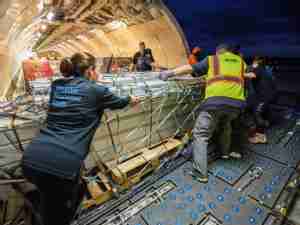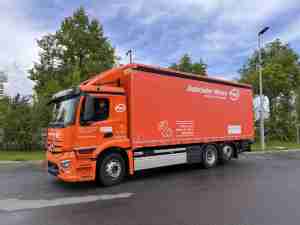Julian Keeling, CEO at Consolidators International (CII), a major airfreight wholesaler, speaking in Chicago before the Chicago Air Freight Forwarders Association, stated the "decoupling" of other economies from the US, "'is more myth than reality. The American economy easily remains the single most important market for other nations' exports, particularly from Asia. A slowdown in America means a slowdown in the export-driven economies of Asia," declared Keeling.
Keeling believes the current recession, "'may be the worst since World War II. Air freight is facing the armies of the night," he declared. He ticked off these "armies" including "the endless war in Iraq draining our economy of $1 trillion, a housing wreck costing banks billions and foreclosures to millions, and continuing losses of high paying manufacturing jobs. Looming over these obstacles to a prosperous economy is the catastrophic price of oil, now climbing to $150 a barrel. The unprecedented cost of fuel is reaching into every nook and cranny of American life, weakening the ability of both consumers and businesses to spend and invest, stated Keeling.
The airfreight executive said that international freight and domestic cargo "are taking different paths. Domestic cargo is a basket case," he asserted. The high price of fuel combined with the increased ability of truckers to penetrate the air cargo market is bringing ruination to domestic freight," Keeling warned. "Ironically, domestic airfreight which started after World War II primarily as a method for moving emergency shipments, may be returning to its roots specializing in overnight 'must get it there' shipments," he asserted.
"International cargo presents a brighter picture, although the years of 10 to 15% annual growth are gone, perhaps forever," continued Keeling in his talk to Chicago forwarders. He foresees a more modest growth of about three to five percent "primarily due to the weak dollar and the subsequent surge in exports. "Happily, US manufacturers didn't outsource all of their production capability to foreign nations. The businesses that kept their manufacturing skills within the US now are benefiting with greater volumes of exports," he stated.
Keeling believes as the recession grinds on this year and into next, "tonnage will decrease because of reduced import demand. All-cargo carriers, which have sprung up like weeds after a rain, will shrink their fleets with some going out of business as import demand from Asia falters. Also reducing their freighter fleets will be the combination carriers like Korean Air and Lufthansa, who are major players in the cargo market."
The CII executive sees an ominous trend in increased competition from ships. "Steamship lines no longer are content to leave high value, just-in-time types of freight to the airlines," stated Keeling. "The shipping lines with new, huge 6,000-teu containerships coming on line, are fighting for every scrap of freight," he affirmed.
Keeling then turned his attention to "our crowd," the freight forwarders.
"I believe we will do relatively well, particularly the mid-sized forwarder, even in our current sluggish economy," said Keeling. "We are tough, resourceful and can turn on a dime; abilities the large, multi-national forwarders do not share." Keeling believes personal service to customers will be a far more important consideration than ever before, "despite our world of hi-tech. In an uncertain environment, shippers will require more of the human touch. It is the mid-sized forwarder who can provide that touch," he asserted.
In his summation, Keeling suggested forwarders emphasize five strengths in serving their customers. They include; always attempt to improve customer service, strengthen overseas networks, get out of the office and travel to destinations in which you are moving freight, impr









